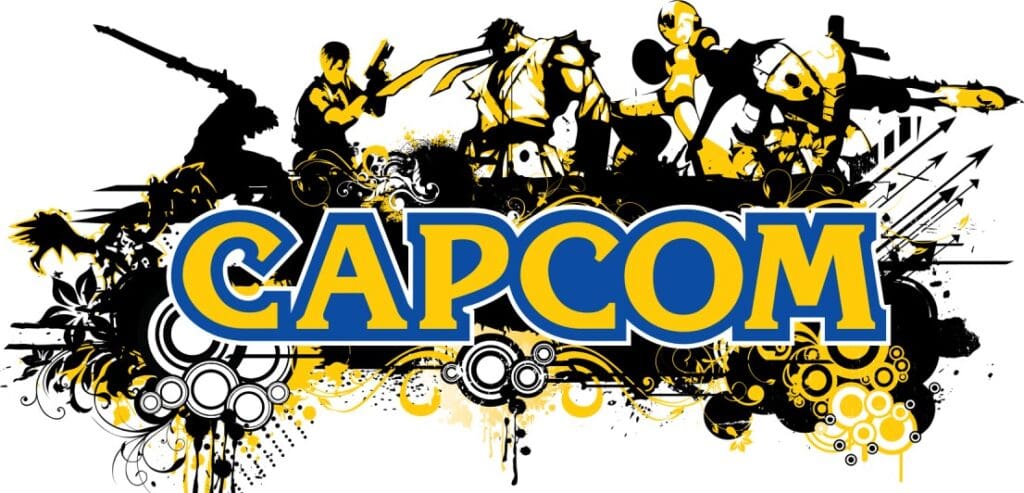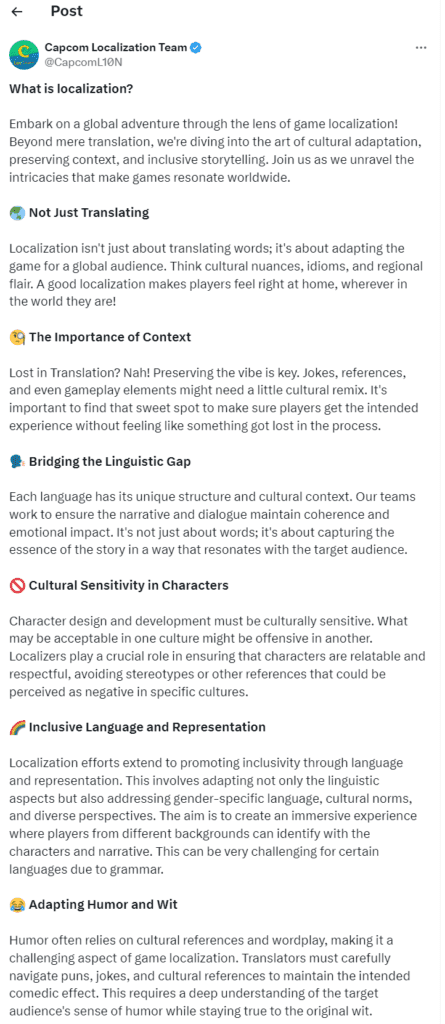
Japanese video game developer and publisher Capcom recently made a controversial announcement regarding their localization efforts for games released outside of Japan. Localization, the process of adapting a product for a specific market, is common practice across the industry. However, Capcom’s stated approach has drawn criticism from fans and consumers. The backlash highlights growing tensions around localization and fears that essential context and representation are being overlooked to appease vocal minority groups.
In a social media post, Capcom’s localization team outlined their focus on “cultural sensitivity,” “inclusive language,” and tailoring content to “modern audiences.” For many, this signals forced changes that cater to diversity, inclusion, and equity (DIE) activists rather than faithfully conveying the original creative vision. Coming amidst larger debates around DIE practices in gaming, the reaction reflects consumer concern that ideological agendas are overriding quality translation.
RELATED: Red Sonja, LLC Threatens Legal Action Against Antarctic Press Over Parody Character Blue Sonya

Translation involves directly converting text or audio from one language to another, preserving the original meaning and context. Localization allows more liberal adaptation to ensure content resonates in a specific cultural or regional market.
Done well, localization smooths out references or humor that may not track outside the source country. However, critics argue that Capcom risks going beyond necessary adaptation into arbitrary changes to satisfy particular political leanings, rather than connecting with broader audiences. The consumer backlash represents growing frustration with perceived overreach by DIE consultants and advocates in the gaming industry.
DIE initiatives have achieved growing traction across technology, media, and gaming in recent years due to the promise of large corporate dollars being injected into projects. However, prescriptive policies around representation and speech have also generated resistance. For instance, former Blizzard developer Mark Kern recently highlighted DIE rules that incentivize token diversity hires over qualified candidates. The “Sweet Baby Inc” DIE consultancy has also faced criticism for extremist positions on game content.
In this climate, Capcom’s localization announcement rings alarm bells – suggesting an emphasis on Western progressive ideals over accurately conveying the original Japanese source material. The response calls into question whether Capcom understands its international consumers and underscores that heavy-handed localization that disregards authenticity risks commercial success.
RELATED: Reacher Star Alan Ritchson Attacks Donald Trump To Virtue Signal Before Hollywood

Along with Capcom adhering to this ideology. Nintendo is as well. On the Nintendo of America career page, a listing for a Localization Production Specialist (Japanese) in Redmond, Washington notes that one of the duties reads: “Maintains awareness of culturalization- and DE&I-related topics, identifying issues and proposing solutions as needed”

Another bullet point reads: “Leverages understanding of game content and target market trends and culture in making recommendations and proposals related to market strategy and tactics“

Recently, they have added a listing for the same position but for Spanish, and have dropped the original Japanese listing.

Localization walks a delicate line between adaptation and erasure. Nintendo’s posting indicates the latter – promoting inclusive language and cultural sensitivity at the expense of fidelity to original artistic visions.
The consumer response is a plea for localization policies that add context, not restrictions, and expand understanding across regions rather than imposing values by force. Ultimately, if things continue like this for Nintendo, the backlash of gamers will affect something every business, no matter how DIE compliant, cares about; the consumer’s money.

Hopefully, Capcom will reconsider this approach. Localization should enable creative works to transcend borders, not trample them. If Capcom ignores fan feedback and pursues misguided localization efforts that twist beloved properties to fit narrow ideologies, they risk commercial fallout.
Responsible localization requires respecting original cultural contexts. Capcom would be wise to pursue translation policies that open thoughtful intercultural dialogue rather than reactionary changes. The international gaming community is watching closely and has translators standing by.
What do you think of Capcom’s Video Game DEI incident? Leave a comment and let us know.
NEXT: Microsoft’s Next-Gen Console Going “Full Speed Ahead” For A 2028 Release In Leaked Docs

Nintendo of Japan needs to kick Nintendo of America, out of Washington State.
Nothing will change until this is reflected in poor sales. And even then, Capcom is so retarded they might take it as a sign westerners aren’t interested in their games anymore in general. lol
DEI is a Marxist Cult.
Losing money is not enough. Appearing virtuous in the eyes of higher cults members, like Blackrock, is all that matters. Don’t buy woke games, spread the word on one that aren’t, retro games are fun, and fight the cult members. They have to be made irrelevant. Most of them are addicted to likes and appearing “virtuous”.